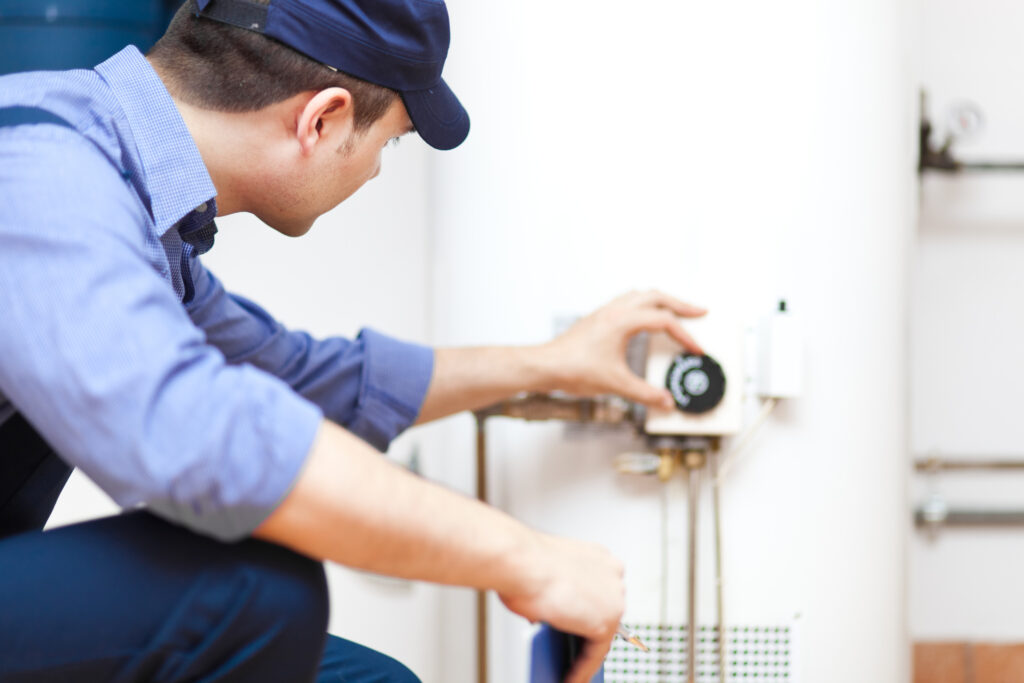Water heaters are necessary for any household, providing hot water for showers, dishes, and laundry. However, they can also significantly contribute to your monthly energy bills. That’s why understanding water heater efficiency ratings is crucial for every homeowner.
What Are Water Heater Efficiency Ratings?
Water heater efficiency ratings measure how well a water heater converts energy into heat. The higher the rating, the more efficient the water heater is at heating water. Efficiency ratings can vary depending on the type of water heater and its fuel source.
What Do These Ratings Mean for Your Bills?
Higher efficiency ratings mean lower energy consumption, translating to a lower monthly bill. For example, if you have an old water heater with a low-efficiency rating, you may be paying more in energy costs compared to a newer, more efficient model.
Types of Water Heater Efficiency Ratings
Energy Factor (EF) – This rating measures how efficiently a water heater uses its energy source. The higher the EF, the more efficiently the unit converts energy into hot water. Electric water heaters typically have an EF between 0.75 and 0.95, while gas water heaters range from 0.5 to 0.7.
Uniform Energy Factor (UEF) – This rating is similar to the EF but considers how well a water heater keeps hot water in the tank for extended periods. It also considers standby heat loss, the heat lost when hot water sits in the tank. The UEF ranges from 0 to 1, with a higher value indicating better efficiency.
Annual Fuel Utilization Efficiency (AFUE) – This rating is specific to gas and oil-fired water heaters and measures how efficiently they convert fuel into heat over the course of a year. The AFUE ranges from 0 to 100%, with a higher value indicating better efficiency.
Factors That Affect Water Heater Efficiency Ratings
Type of water heater – Different water heaters have varying efficiency ratings. Tankless water heaters, for example, typically have a higher EF than traditional tank-style units.
Fuel source – The type of fuel used can also impact efficiency ratings. Gas water heaters tend to have lower EFs compared to electric ones, but they may have a higher UEF.
Size of the unit – A larger water heater may have a higher capacity, but it also means more standby heat loss and potentially lower efficiency ratings.
Insulation – Proper insulation can help reduce standby heat loss and improve efficiency ratings.
Usage habits – The amount of hot water used in a household can also affect efficiency ratings. Conserving hot water and using it only when needed can help improve overall efficiency.
Maintenance – Regular maintenance, such as flushing the tank and checking for leaks, can help maintain high-efficiency ratings over time.
Installation – Proper installation is crucial for ensuring optimal efficiency. Poorly installed water heaters may lead to leaks and inefficiencies.
Climate – A region’s climate can also affect a water heater’s efficiency ratings. For example, a gas water heater may have lower EFs in colder climates due to increased standby heat loss.
Energy prices – The cost of energy in a specific area can also impact the overall efficiency of a water heater. Higher energy prices may lead to homeowners opting for more efficient units.
Technology advancements – New and more efficient water heaters are being developed as technology advances. Replacing an old unit with a newer, higher-efficiency model can significantly improve efficiency ratings. These factors all play a role in the efficiency ratings of water heaters, and it’s essential to consider them when choosing the right unit for your household. It’s also important to regularly maintain and monitor your water heater to ensure it is operating at peak efficiency. By understanding these factors, you can make an informed decision that not only saves you money on energy costs but also reduces your environmental impact.
A Small Step For a More Sustainable Future
As technology advances and climate change becomes a pressing issue, investing in a high-efficiency water heater is a small step toward creating a more sustainable future. So next time you’re in the market for a new water heater, consider these factors and choose one that meets your household’s needs while being energy efficient. With the right choice, you can save money, reduce your carbon footprint, and have a reliable hot water supply for years.
Reach Out To Our Team Today For More Information
With the right knowledge and equipment, you can significantly reduce your energy bills while enjoying all the benefits of having hot water on demand. If you have questions about water heater efficiency ratings or want to learn more about how we can help reduce your monthly bills, please contact us today. Our team of experts at DeZiel Heating & AC is always happy to guide and assist in finding the best solution for your home’s water heating needs. That’s why we’re your neighborhood’s most preferred contractors. Trust us to keep your home comfortable and efficient all year round.

